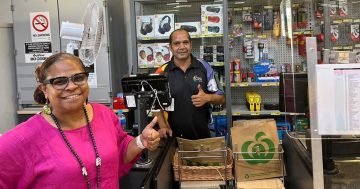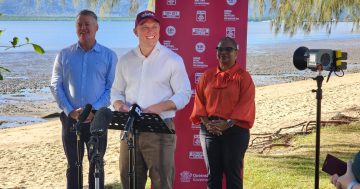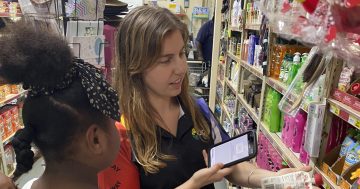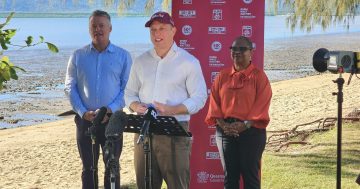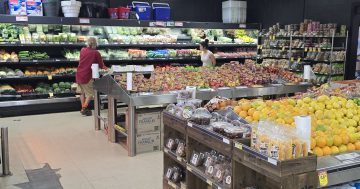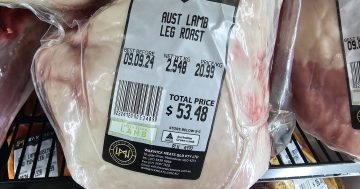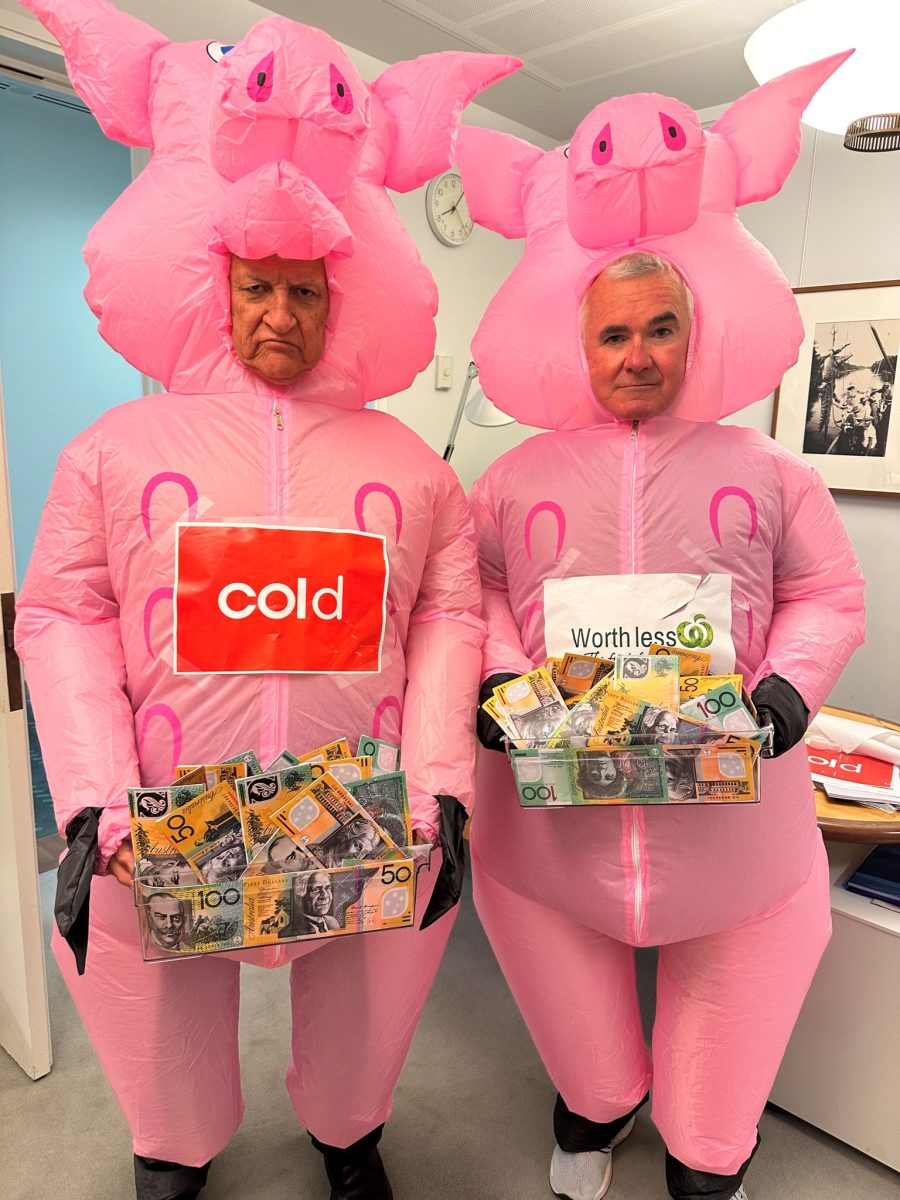
Independent federal MPs Bob Katter and Andrew Wilkie turned the country’s attention to the supermarket duopoly with their pig suit stunt in Canberra last week, but what can be done to make the State and Federal Governments take the crippling grocery bills of Cape York and Torres Strait residents seriously? Photo: Facebook.
While grown men in pig suits showing their ridicule for Australia’s supermarket duopoly gave political watchers a laugh last week, the stunt should be used to highlight the horror remote shoppers are facing every day.
That is the message from Katter’s Australian Party (KAP) leader Robbie Katter after founder Bob Katter joined fellow independent federal MP Andrew Wilkie on 28 February, 2024 to agitate Woolworths and Coles by wearing bright pink inflatable suits and “eating” troughs of fake $100 and $50 notes.
The unconventional protest received national media attention, but the Member for Traeger said he hoped it would also draw attention back to the cost of living issues crippling Cape York and Torres Strait residents every time they entered their local supermarket.
“[The stunt] is trying to grab their attention, and not only grab people in general, but redirect it as it applies to the more remote areas like Cape York,” Mr Katter told Cape York Weekly.
“If grocery costs are bad in metro areas, it’s exacerbated tenfold in the remote areas.
“You use any device you can to try and showcase these issues at a national level.”
In 2023, the Queensland Government announced a five-year, $64 million freight subsidy it said would reduce cost of living pressures for those calling the northernmost part of the state home.
However, it was revealed the subsidy would only equate to a 5.2 per cent saving at the cash register – and only on “essential goods” like fruit and vegetables, fresh meat and dairy, and frozen goods.
Member for Cook Cynthia Lui argued the success of the freight subsidy relied on suppliers engaging with it.
“This government is committed to working with communities on tailored solutions to address the ongoing impacts of cost of living pressures,” she said.
“The Freight Assistance Scheme will give communities a 5.2 per cent discount, applied at the cash register on essential goods, but there is more to be done.
“We have been out there talking to suppliers, and I would strongly urge all food suppliers in the Cape and Torres regions to sign up to the scheme, because its effectiveness depends on this.”
But the 5.2 per cent reduction at the supermarket has done little to help one Cape York resident, who spoke about her family’s struggle to put food on the table on the condition of anonymity.
“There’s six of us, but it’s costing most times $700 every week just to feed everyone,” she explained.
“I get sick to my stomach when I go to the store because it costs so much money, but the government says the freight thing is meant to be making it better for us all up here.”
Mr Katter said the freight subsidy had failed remote Queenslanders, adding he believed the government needed to consider reallocating money earmarked for health services to making a genuine attempt to reduce the financial burden on Cape York and Torres Strait residents at the supermarket.
“Thirteen dollars for a loaf of bread in the Gulf [of Carpentaria] and that’s supposed to be with assistance,” he said incredulously.
“The remote areas of the Gulf and Cape York must be the most depressed at times in grocery pricing, with direct links to health outcomes.
“[Government] has to link it directly with health outcomes, and we have some pretty big health budgets there that could be better justified as direct subsidies to make basic groceries cheaper.
“There’s a direct correlation between kids and people not eating well, and you’re going to be paying for it one way or the other, so it should be a high priority on the agenda for every conversation we have around health.”


